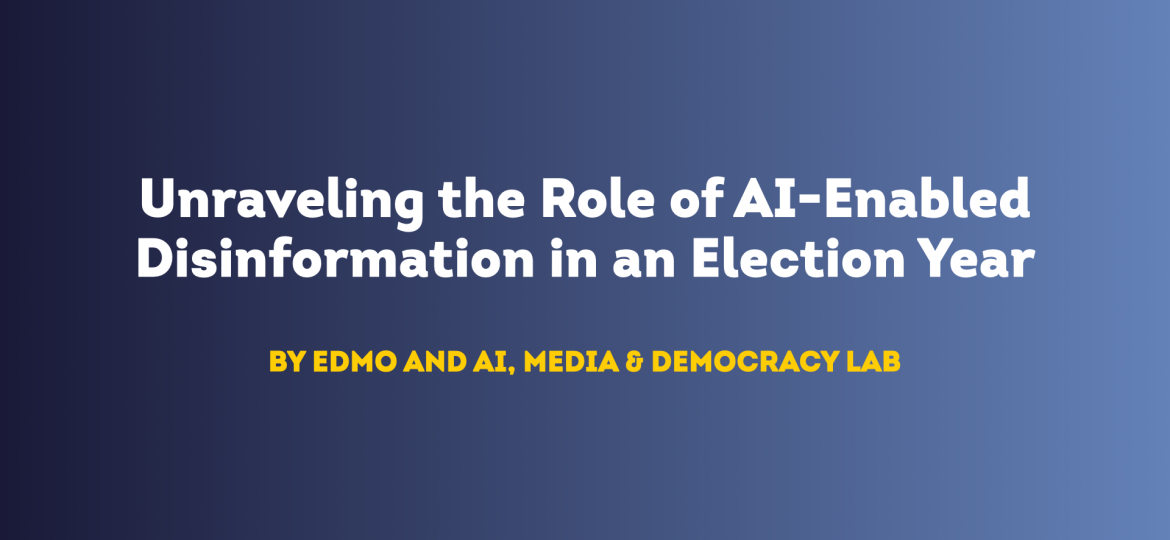Join us for an insightful panel discussion examining the role of Generative AI-enabled disinformation in shaping this year’s election landscape. At the start of 2024, Generative AI was expected to supercharge the spread of disinformation and mislead voters during crucial elections across the globe.
Looking back, just how influential was the role of Generative AI in this election year? Moving forward, what lessons can we take to maintain the integrity of elections in the age of AI? In this online session, co-organised by EDMO’s Generative AI and Disinformation expert group as well the AI, Media and Democracy Lab, we turn to a panel of experts for their insights on this prominent topic.
Panelists
Mark Scott
Mark Scott is senior resident fellow at the Digital Forensic Research Lab’s (DFRLab) Democracy + Tech Initiative within the Atlantic Council Technology Programs. In this role, he is engaged in expanding the Initiative’s ongoing work around comparative digital policy, regulation, and governance, as well as efforts linked to the European Union’s Digital Services Act and Digital Markets Act. He currently sits on the international advisory board of RegulAite, a project at the University of Amsterdam dedicated to artificial intelligence policymaking. He is also a research fellow at the Centre for Digital Governance at the Hertie School in Berlin. Prior to joining the Atlantic Council, Scott was the chief technology correspondent for Politico.
Josephine Lukito
Dr. Josephine “Jo” Lukito is an assistant professor at the University of Texas at Austin’s School of Journalism and Media. She is also the Director of the Media & Democracy Data Cooperative and a Senior Faculty Research Affiliate for the Center for Media Engagement. Jo uses mixed methods and computational approaches to study political language in the information ecology, focusing especially on harmful digital content (e.g., mis/disinformation, hate speech) across multiple platforms. Her work has been published in top-tiered journals such as Political Communication and Social Media + Society, and featured in Wired, Columbia Journalism Review, and Reuters.
Mato Brautović
Dr Mato Brautović is Professor and Head of the Department of Mass Communication at the University of Dubrovnik. Brautović is also coordinator of the EDMO hub for Croatia and Slovenia, Adria Digital Media Observatory (ADMO), and head of the Center for Fact Checking and Citizen Resilience DUCHECK at the University of Dubrovnik. He is a member of the EDMO Expert Groups on Structural Indicators for the Code of Practice on Disinformation, the Working Group on Policy on Disinformation and the Working Group on Research on Disinformation. He is the author and co-author of four books, numerous book chapters, academic articles and reports on the role of media in war, journalism accountability, online journalism, the history of the internet, social media and disinformation.
Taberez Ahmed Neyazi
Dr Taberez Ahmed Neyazi is Associate Professor of New Media and Political Communication and Director of Digital Campaign Asia project in the Department of Communications and New Media at the National University of Singapore (NUS). He has authored Political Communication and Mobilisation: The Hindi Media in India (Cambridge University Press, 2018) and published several journal articles and book chapters. His next book on The Politics of Internet Shutdown will be published by the MIT Press. He is also the Incoming Editor-in-Chief at The International Journal of Press/Politics.
